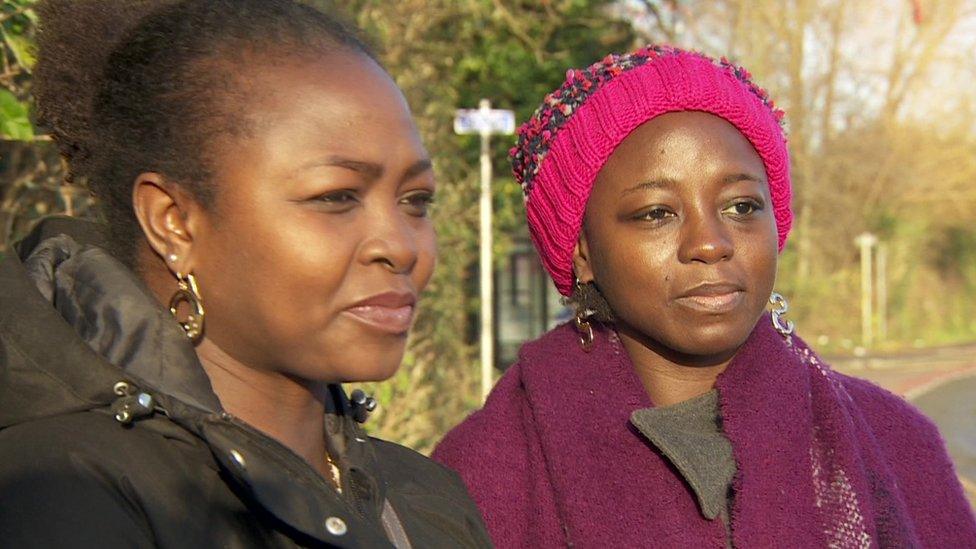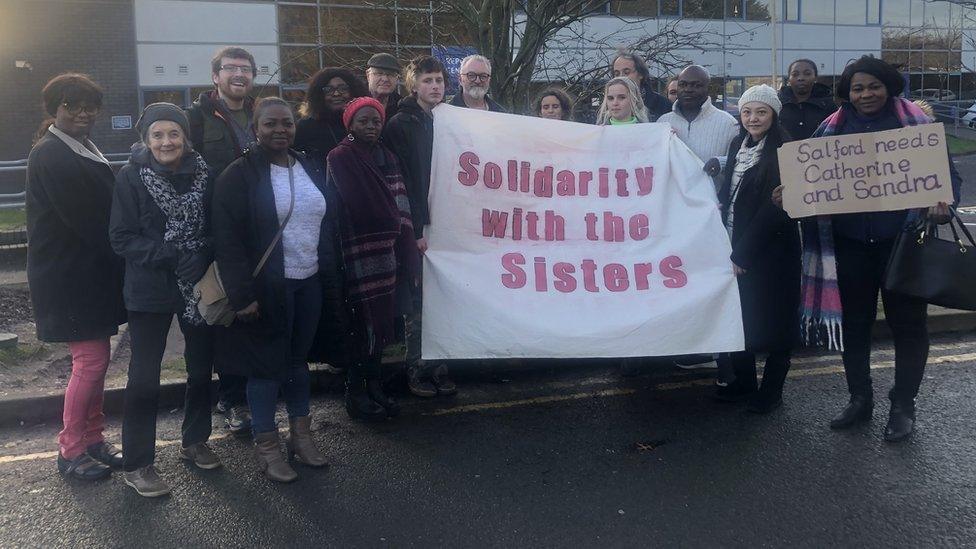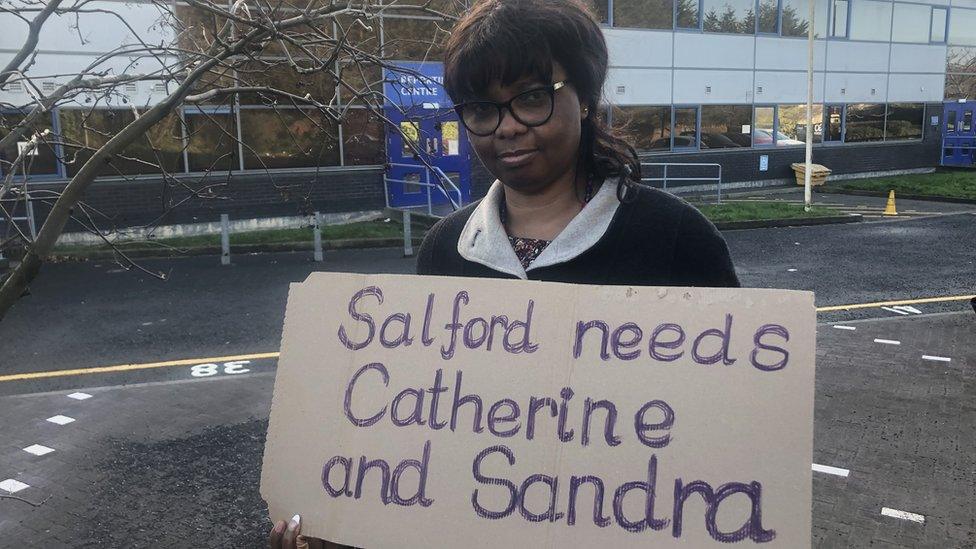Salford sisters' health fears over deportation threat
- Published

Catherine, left, and Sandra Otokhina have "devoted themselves to voluntary work", the Diocese of Salford has said
Two sisters who have lived in the UK for more than seven years fear they "could be deported at any minute".
Nigerian-born Catherine and Sandra Otokhina face an uncertain future after their applications for leave to remain on compassionate grounds were rejected.
Sandra has sickle cell disease - which two of her siblings in Nigeria have died of - and concerns have been raised about her "survival" if deported.
The Home Office said it did not comment on individual cases.
Supporters gathered outside the Home Office reporting centre in Salford "to stand in solidarity" with the sisters.
Daniel Bath, who is the music director at Salford Cathedral, said he organised the demonstration to "show that we care about Catherine and Sandra".
Catherine, 34, and Sandra, 28, have lived in the UK since September 2010 and October 2012, respectively, and have both gained law degrees during this time.
But Catherine had to stop working in May 2019 due to an administrative error linked to her application.
While Sandra's PhD proposal has been accepted, she is unable to resume her studies because her student visa has expired and her subsequent application was rejected.

Catherine and Sandra Otokhina were joined by supporters during their regular visit to the reporting centre
The Diocese of Salford has written to Home Secretary Priti Patel to draw her attention to the "plight" of the sisters who "make an outstanding contribution to British society".
"They are exactly the type of highly skilled, educated, hard-working and community-focussed people that an outward-looking nation needs to attract," the Salford Diocese said.
Sandra has received treatment through the NHS for sickle cell disease, which has stabilised her condition.

Eucharia Kukoyi joined supporters outside the Home Office reporting centre in Salford
The sisters have five siblings in Nigeria - two have died from sickle cell disease and one is currently in a critical state.
In the letter, it raised concerns about how "the prospect of returning to Nigeria puts Sandra's survival in severe doubt".
Last month the sisters were detained during one of their regular appointments at the reporting centre while they await a final decision.
But they were later allowed to leave due to Sandra's health condition.
"It felt like I was a criminal. It felt like I had lost all hope," said Sandra.
"It's mentally hard knowing you could be deported at any minute."